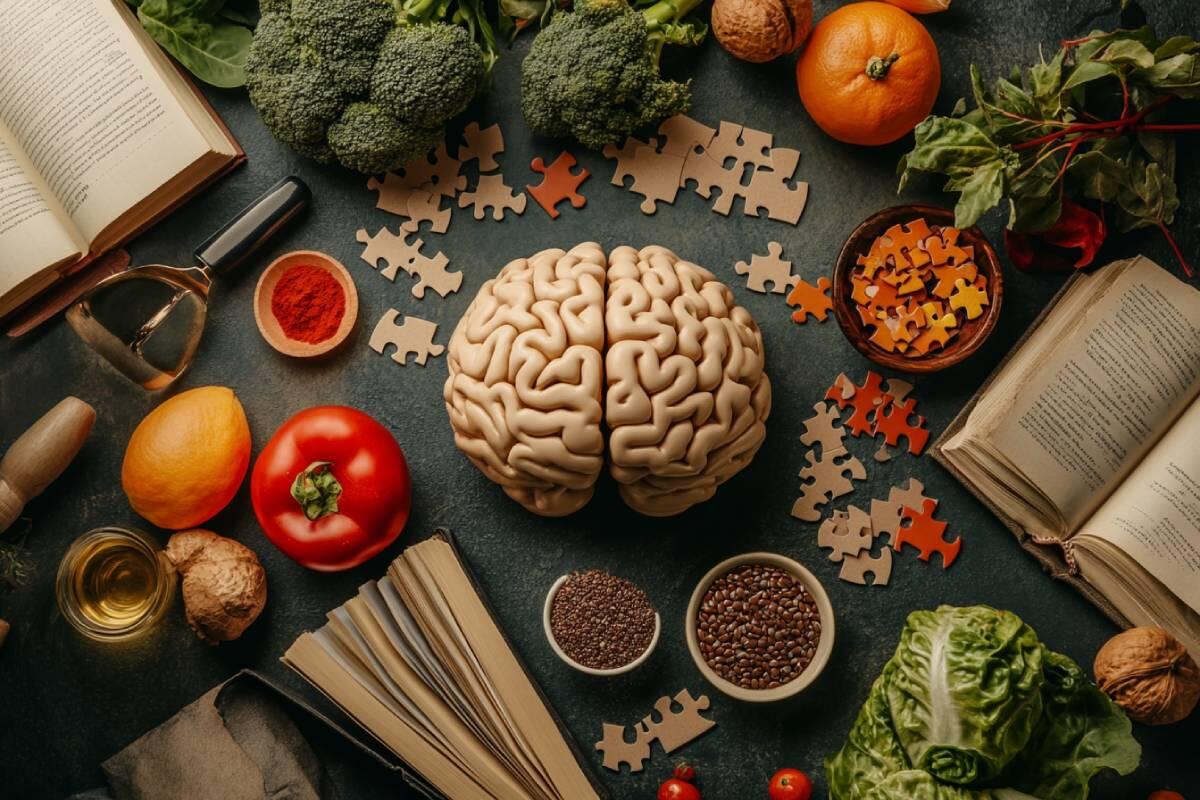Memory and Concentration: How to Improve and Boost Cognitive Performance
Memory and concentration are essential cognitive abilities for performance in various daily activities, whether professional, academic, or personal. That’s why we value and strive to enhance them.
Memory allows us to store, organize, and retrieve information. Concentration, on the other hand, directs and maintains focus on a specific task while avoiding distractions. Both are fundamental for acquiring new knowledge and executing complex tasks efficiently.
Developing and maintaining these cognitive functions at a high level requires intentional practices and a balanced lifestyle. Factors such as healthy eating, regular physical activity, quality sleep, and stress management help improve memory and concentration.
Keep reading this article to learn how to strengthen these cognitive skills!
The Importance of Memory and Concentration
Memory is the brain's ability to store, process, and retrieve information. It is divided into types such as short-term memory (which stores temporary data) and long-term memory (which retains information over time).
Concentration refers to the ability to stay focused on a task, avoiding internal and external distractions.
These cognitive functions are crucial for learning, productivity, and performance in daily life. They are also key in decision-making and problem-solving, making them indispensable for everyday activities.
The Four Stages of Memory
An interesting point about memory is that it is composed of four stages, which can be strategically utilized to improve retention:
1. Encoding
This is when information is captured by the senses and transformed into a format the brain can interpret and store.
This stage relies heavily on attention and concentration. Without them, encoding may be compromised.
2. Storage
The encoded information is kept at different levels: sensory memory (very brief), short-term memory (temporary), and long-term memory (durable and with greater capacity).
3. Consolidation
The stored information is reinforced and stabilized in the brain. This happens primarily during sleep, which highlights its role in memory processes.
4. Retrieval
This is when stored information is accessed. For retrieval to be effective, the previous stages must have been successful.
Factors That Influence Memory and Concentration
Positive Factors
- Mental stimulation: puzzles, reading, challenges.
- Nutrient-rich diet (omega-3s, antioxidants).
- Regular physical exercise.
- Adequate sleep.
Negative Factors
- Chronic stress.
- Sleep deprivation.
- Poor diet.
- Excessive screen time.
Healthy Habits to Improve Memory and Concentration
1. Engage in Regular Physical Activity
Exercise boosts blood flow to the brain and promotes neurotransmitter release. Studies show benefits for spatial and verbal memory.
2. Maintain a Balanced Diet
Recommended foods:
- Fatty fish: rich in omega-3s.
- Berries: contain antioxidants.
- Nuts and seeds: high in vitamin E.
- Leafy greens: rich in vitamin K.
3. Get Quality Sleep
REM sleep is strongly linked to memory consolidation and effective learning.
4. Reduce Stress
Practices such as meditation, mindfulness, and yoga help lower cortisol levels, a hormone that negatively impacts memory.
5. Stimulate Your Brain with Cognitive Activities
Games, reading, and puzzles are excellent ways to keep the brain active and reduce cognitive decline.
Supplements for Memory and Concentration
1. Omega-3 Fatty Acids
Essential for brain structure and function. Studies show improvements in memory and prevention of cognitive decline.
2. Ginkgo Biloba
Enhances cerebral blood flow. Research suggests improved cognitive performance.
3. Bacopa Monnieri
An herb from Ayurvedic medicine shown to improve memory and reduce stress.
4. Caffeine
Provides temporary boosts in alertness and focus.
5. B-Complex Vitamins
Crucial for nervous system function (B6, B9, B12). Supplementation should be guided by a professional.
Practical Tips to Improve Concentration
- Pomodoro Technique: 25 minutes of focused work followed by a 5-minute break.
- Organize your environment: remove distractions.
- Use to-do lists to maintain structure.
Practical Tips to Improve Memory
- Train your brain with puzzles, logic games, and memory exercises.
- Use associations to enhance recall.
- Break complex information into manageable chunks.
- Take strategic breaks to avoid overload.
- Teach what you've learned to reinforce knowledge.
Conclusion
Improving memory and concentration results from healthy habits, mental stimulation, and when appropriate, supplementation.
Investing in your brain health ensures long-term quality of life, productivity, and well-being.
